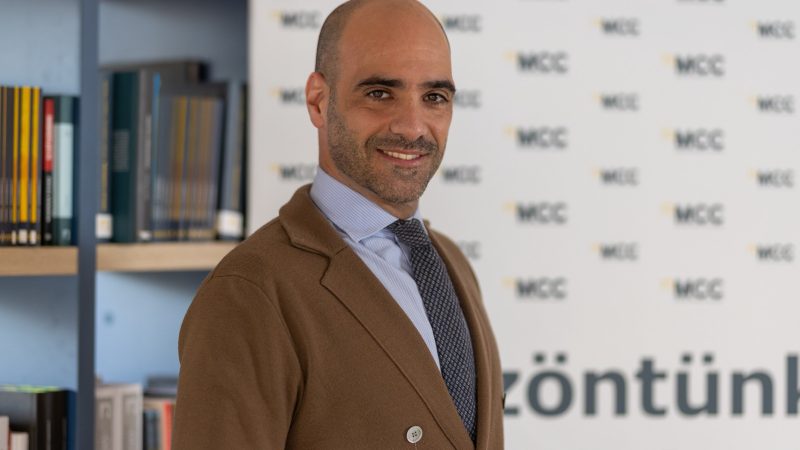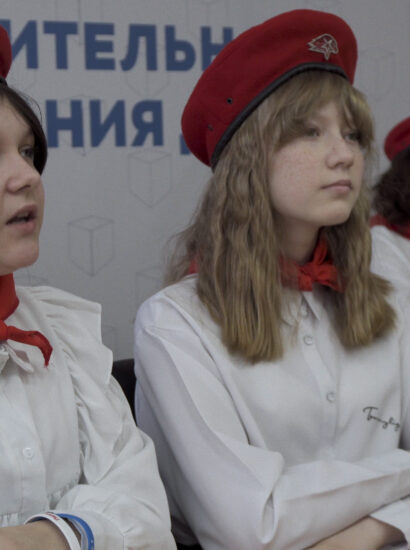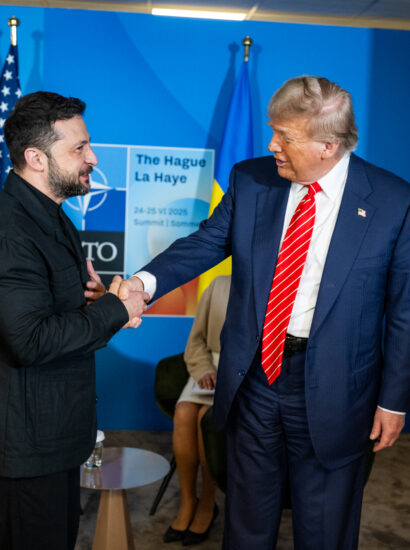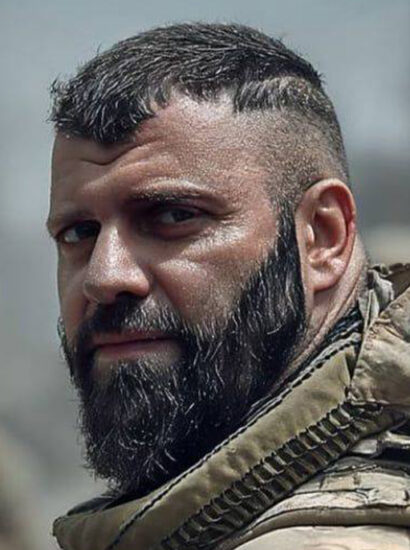The elections for the European Parliament are just around the corner and the controversies surrounding the elections have already begun.
Two of the big news was that Charles Michel, current President of the Council of the European Union, after deciding to run for MEP, finally backed down in the face of the possibility of Hungarian Prime Minister Viktor Orban momentarily taking the seat. Also, a document was recently leaked in the Financial Times, detailing how to pressure Hungary to withdraw its veto on military aid to Ukraine.
For this reason, we spoke interviewed Rodrigo Ballester, Director of the Center for European Studies at the Matthias Corvinus Collegium (MCC) since 2021. Ballester is an expert on European Union matters, as he was an advisor in the European Parliament and then started a career as a civil servant in the European Commission where he worked in the fields of justice, migration and finally as a member of the cabinet of the European Commissioner for Education and Culture. In total, he spent 17 years in Brussels.
The European Parliament elections will be held in early June, what do you think the outcome will be like?
All the polls point to a rise of conservative/sovereignist parties, and a clear growth of the ECR and ID groups. Will that prevent the current “Frankenstein coalition” (Centre-right, socialists, liberals, greens and far left) to reconduct the coalition they build in the European Parliament for several legislatures already? Most probably not.
Hence, we will have a very polarised European Parliament along a clear dividing line: federalists vs sovereignists, anywheres vs somewheres or, as I prefer to put it, conservatives vs deconstructionists.
Otherwise, it appears the Greens will be the big losers of the next election.
ECR and ID are the parliamentary groups that have grown the most, why do you think this is happening?
Both groups are capitalizing on the growing discontent towards globalist policies which the European Union is largely identified with by millions of voters: the Green Deal, migration, economic liberalism but also political correctness and the constant will to rule top-down and erode national sovereignty and act beyond its mandate. On all those issues, those two party groups are ready to question the current consensus and offer a totally different vision of Europe.
Charles Michel was going to stand as an MEP in the European Parliament elections of 2024, however, he has since said that he would not do so and that he would finish his term of office. What was the reason for this change? Was it because of the pressure from the European bureaucrats in view of the feared inauguration of Hungary’s Viktor Orban as President of the European Council?
This vaudeville is definitely a sign of febrility and nervousness that goes beyond rationality. It is unthinkable that Michel had to reconsider his decision just to prevent Orban from chairing (yes, only chairing) some meetings. True, the forthcoming European Councils are crucial and will appoint the main European Union top jobs, but it remains that chairing is not deciding or taking the lead. To the contrary, the chair is supposed to be a primus inter pares searching for a common ground to the detriment of its national position.
Moreover, Orban would have been very much “helped” by the General Secretariat of the European Council and would have been, at best, a master of ceremonies.
All that noise about almost nothing? Again, it says a lot about the fear of European elites about the European elections and a possible reshuffle of power within the EU. They are nervous, and they treat the Hungarian Prime Minister as a nemesis, as the allegory of the “populism” they claim to fight.
Although there is no longer a possibility of Orban assuming the Presidency of the European Council, what do you think his objectives as President of the Council would have been?
Again, his role would have been very limited and I even think he would have been less “harmful” to the federalist camp as a chair than as a national leader who can push and defend his national interest in the European Council. Otherwise, Hungary already defined its political priorities during its chairmanship, as all countries do, and will promote them as all the other countries do to.
Do not forget that the national presidencies of the EU are never decisive, it is almost a protocolar role for a very limited amount of time: six months, at the scale of the EU legislative process, is barely more than the blink of an eye.
Moreover, Hungary’s chairmanship coincides with this unique period in between mandates, after the European elections but before the new Commission starts, during which the legislative activity is at its lowest. Hence, the adversaries of PM Orban should be relieved and relaxed; instead, they literally panic and think about all the manners to deprive Hungary of its right to chair the European Council. Grotesque.
A few days ago, an article was published by the Financial Times, in which it was said that the EU would blackmail Hungary if it did not approve the package of measures to Ukraine, and it was even said that they would seek to destroy the Hungarian economy and the Hungarian currency. Don’t you think this was hypocritical coming from the same people who call themselves democrats?
And especially from people claiming that Hungary blackmails the European Union when it uses a perfectly legal mechanism called unanimity. Who is blackmailing whom? After this obviously orchestrated leak in one of the official bibles of the Brussels bubble, the question is obvious: the EU seemed to cross all the lines of ethics and legality, in a mafioso style, to threaten a Member State who plays by the rules. This leak is a turning point and shows several things. First, that the European establishment is ready to sink one of its Member States if need be, and treat it far worse than countless third countries. Second, that “rule of law” is dead if it ever was alive because this Godfather type of behaviour clearly shows that this mechanism is a political tool to be triggered against those who do not toe the line.
Orban eventually agreed to vote for the aid to Ukraine, why do you think he eventually agreed to vote ‘yes’?
Yes, he agreed and even if, in exchange, he obtained some counterparts he ended up lifting its veto. Why? First, because the question of the financial aid to Ukraine is indeed existential for the EU. Second, because Hungary was under a huge pressure of his peers who all agreed on this package. Sometimes, the “realpolitik” is to admit that you cannot win all the fights. Third, because it was much more than pressure.
Political blackmail is slowly but steadily becoming an accepted modus operandi in the EU.
Two undeniable examples: the leak in the Financial Times and, even worse, the European Parliament threatening the Commission with legal proceedings just because it played by its own rules and released one third of the funds it confiscated to Hungary.
Also, there has been talk of preventing Hungary from assuming the rotating presidency of the European Council. Is it possible that they will end up taking such action?
For months, there has been an ongoing campaign in Brussels, among NGOs and within the European Parliament to deprive Hungary of its rotating chairmanship. To a large extend, this is an obscene exercise of large scale virtue signalling and a way to keep damaging the reputation of Hungary literally an obsession among some EU circles. Personally, it think it is unlikely, first and foremost because the influence of an EU Presidency is very limited. It would be ridiculous, but given the level of hysteria among the EU elites, their “hungarophobia” and that it is legally possible to alter the order of Presidencies by qualified majority, everything is possible.
The antagonism between the European Union and the Hungarian government became visceral and personal, they want Orban’s scalp, they want him dead or alive, whatever it takes. That’s the point.
Ukraine has been the most recurrent topic in recent months in Europe, what would be the consequences if Ukraine ends up becoming a member state?
We are very far from this possibility but it remains that Ukraine is a candidate country and that the European Council decided to start the negotiations with it. But to the question “when would Ukraine join ?” there is simply no answer, no one know. Let’s presume it would in ten years, then because of its size, population, geopolitical importance and poverty (we are speaking about a destroyed country because of the war) its accession would have disruptive effects in the EU. Not to mention that opening the doors to Ukraine also means to open them to the Western Balkans, Moldova and Georgia. Quite a shift.
The farmers’ demonstrations are spreading in Europe, from Romania to Spain, do you think this can generate a before and after for the European elections?
It already has, hence the febrility among European elites. The farmers are carrying on their shoulders a vast movement of anger that is much incarnated by the European Union and more concretely by its very controversial Green Deal : technocratic, ideologic, urban, off ground, top-down, elitist and with devastating effects except for those implementing it.
The EU’s Green Deal is really the paradigmatic example of the failure and blindness of the current elites.
However, more topics will be equally important for the elections and are symptoms of exactly the same disease: irregular migration or the suffocating influence of political correctness which, among other things, is a way to masquerade the elites incapacity to solve real problems. Except that it does not work anymore, as the farmers’ protest show.







